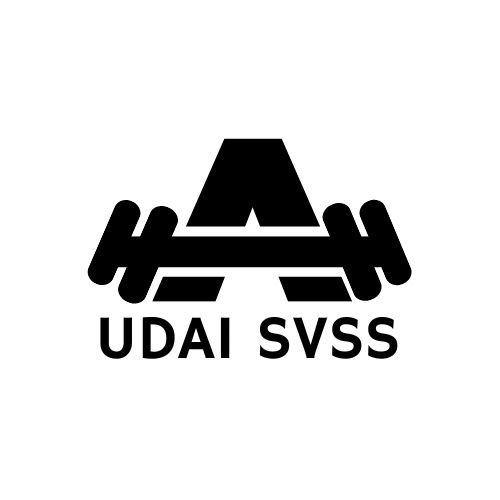Embarking on a journey from a sedentary lifestyle to one of endurance can feel overwhelming, but it’s also incredibly rewarding. The idea of running a marathon, cycling for miles, or participating in an endurance event may seem distant, but with dedication and the right approach, it is entirely achievable. This guide will provide you with practical steps, motivation, and insight into how you can transform yourself from a couch potato into a conqueror of endurance challenges.
Understanding Endurance
Endurance is not just about physical stamina; it also encompasses mental resilience. When we talk about endurance sports, we usually refer to activities that require sustained effort over a longer period, such as running, cycling, swimming, or hiking. These activities demand not only cardiovascular fitness but also muscular strength, flexibility, and mental fortitude.
The Benefits of Endurance Training
Before diving into your journey, it’s essential to recognize the myriad benefits of endurance training:
- Improved Cardiovascular Health: Regular endurance exercise strengthens the heart, improves circulation, and reduces the risk of heart disease.
- Weight Management: Endurance activities can help burn calories, making it easier to manage or lose weight.
- Enhanced Mental Health: Physical activity releases endorphins, which can reduce stress, anxiety, and depression, leading to improved mood and mental clarity.
- Increased Stamina and Energy: Over time, you’ll notice a significant boost in your overall energy levels and daily productivity.
- Community and Camaraderie: Engaging in endurance sports often introduces you to a community of like-minded individuals, fostering friendships and support.
Setting Realistic Goals
Starting your journey requires setting clear and achievable goals. Consider the following when establishing your objectives:
- Short-term Goals: Begin with specific, measurable goals such as walking for 30 minutes three times a week or completing a 5K walk/run in a couple of months.
- Long-term Goals: Once you’ve built a foundation, set more ambitious goals, like completing a half-marathon or a cycling event. These long-term aspirations will keep you motivated.
- SMART Goals: Ensure your goals are Specific, Measurable, Achievable, Relevant, and Time-bound. This framework will help you stay focused and accountable.
The Gradual Build-Up
Transitioning from couch to conqueror doesn’t happen overnight. A gradual build-up is essential to prevent injury and maintain motivation. Here’s how to approach it:
Week 1-4: Get Moving
- Start with Walking: Begin with brisk walking for 20-30 minutes, three to four times a week. This low-impact activity helps build a base without overwhelming your body.
- Incorporate Stretching: Flexibility is vital. Spend a few minutes before and after your walks doing basic stretches to prevent injury and improve mobility.
Week 5-8: Add Intensity
- Introduce Running Intervals: Once you’re comfortable walking, incorporate short running intervals. For example, alternate between 1 minute of running and 4 minutes of walking.
- Cross-Training: Add activities like cycling or swimming to diversify your training and engage different muscle groups.
Week 9-12: Build Endurance
- Increase Distance and Time: Gradually extend your walking/running sessions to 40-60 minutes. Consider participating in a local 5K to get a feel for a race environment.
- Strength Training: Incorporate bodyweight exercises or resistance training twice a week to build muscle strength, which is crucial for endurance.
Nutrition for Endurance
As you increase your physical activity, nutrition plays a critical role in your performance and recovery. Here are some dietary tips to consider:
- Hydration: Staying hydrated is essential for optimal performance. Aim to drink water throughout the day and consider electrolyte drinks during longer workouts.
- Balanced Meals: Focus on a balanced diet rich in whole grains, lean proteins, healthy fats, fruits, and vegetables. Carbohydrates are particularly important for endurance athletes as they provide the necessary energy.
- Pre- and Post-Workout Nutrition: Fuel your body with a light snack before exercising, such as a banana or a slice of whole-grain toast. After workouts, replenish with a combination of protein and carbs to aid recovery.
The Mental Game
Endurance training is as much a mental challenge as it is a physical one. Here are strategies to enhance your mental resilience:
- Mindfulness and Visualization: Practice mindfulness techniques and visualize your goals. Imagine crossing the finish line or achieving your personal best.
- Positive Self-Talk: Replace negative thoughts with positive affirmations. Remind yourself of your progress and capabilities.
- Set Milestones: Celebrate small victories along the way. Each new distance or event completed is a step closer to your ultimate goal.
Staying Motivated
Maintaining motivation can be tough, especially during challenging times. Here are some tips to keep you engaged:
- Join a Community: Consider joining local running or cycling clubs. Being part of a community can provide accountability and encouragement.
- Track Your Progress: Use apps or journals to log your workouts and progress. Seeing how far you’ve come can be incredibly motivating.
- Participate in Events: Signing up for races or charity events can give you something to work toward, making your training feel purposeful.
- Find a Workout Buddy: Training with a friend can make workouts more enjoyable and keep you accountable.
Conclusion
Transforming from couch to conqueror is a journey that requires patience, commitment, and a willingness to step outside your comfort zone. By setting realistic goals, gradually building endurance, nourishing your body, and cultivating mental resilience, you can achieve remarkable success in your endurance pursuits. Remember, every great accomplishment starts with a single step. So lace up your shoes, step out the door, and begin your journey today! Your future self will thank you for it.

